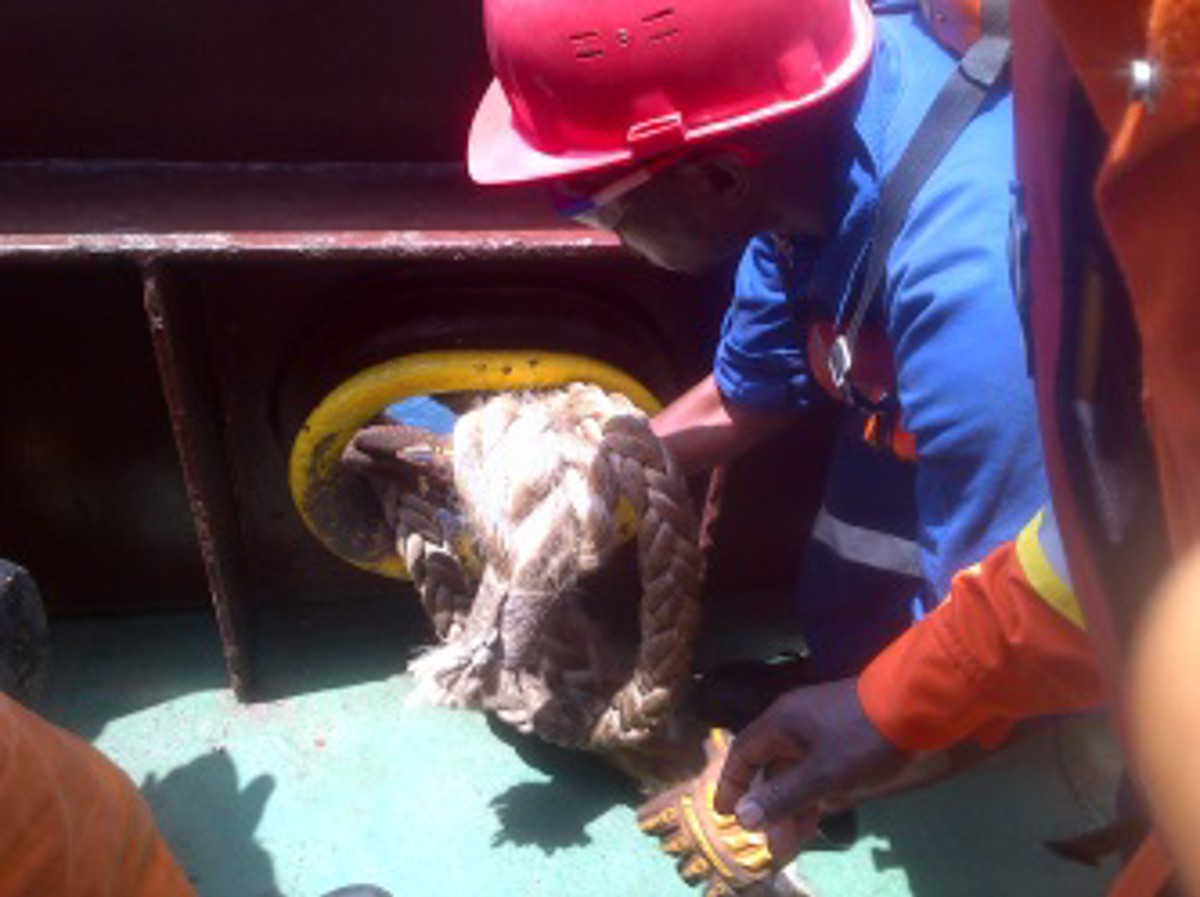Lost time injury (LTI): Hand severed during mooring operations
- Safety Flash
- Published on 8 July 2014
- Generated on 4 February 2026
- IMCA SF 11/14
- 2 minute read
Jump to:
An incident has come to IMCA’s attention in which a crewman lost his right hand during mooring operations.
What happened?
The incident occurred when a service vessel was moving floating hoses away from an incoming tanker (a ‘routine’ procedure) using soft ‘pick up ropes’ attached to each hose. members of the deck crew and Bosun picked up and secured the first pick up rope. They had difficulty in securing the second hose. The Chief Mate (the injured party) came down from bridge and physically took over the job. He held the pick-up rope close to the ‘panama eye’ of the vessel with his arm through the eye of the rope. A sudden sea swell tightened the rope. His right hand was caught against the hard edge of the panama eye, and severed.
Investigation identified the following root causes:
- The Chief Mate ‘stepping down’ to crew task without preparation.
- A potential high consequence hazard was not recognised.
- The injured person did not follow accepted practice of seamanship for handling mooring lines.
- Others who might have challenged him and stopped the job were hindered by cultural norms regarding challenges to formal lines of authority.
Members are reminded to encourage personnel to look after their hands and arms. IMCA produces a range of safety promotional material on hand and arm safety, as well as a poster on mooring safety:
- Watch your hands (pocket card)
- Grinding wheel safety (pocket card)
- Line of fire (pocket card) and Watch out for pinch points (poster)
- Hand-arm vibration (pocket card)
- Mooring safety (poster)
Related safety flashes
-
IMCA SF 16/13
17 October 2013
-
IMCA SF 07/12
10 July 2012
-
IMCA SF 02/08
4 February 2008
IMCA Safety Flashes summarise key safety matters and incidents, allowing lessons to be more easily learnt for the benefit of the entire offshore industry.
The effectiveness of the IMCA Safety Flash system depends on the industry sharing information and so avoiding repeat incidents. Incidents are classified according to IOGP's Life Saving Rules.
All information is anonymised or sanitised, as appropriate, and warnings for graphic content included where possible.
IMCA makes every effort to ensure both the accuracy and reliability of the information shared, but is not be liable for any guidance and/or recommendation and/or statement herein contained.
The information contained in this document does not fulfil or replace any individual's or Member's legal, regulatory or other duties or obligations in respect of their operations. Individuals and Members remain solely responsible for the safe, lawful and proper conduct of their operations.
Share your safety incidents with IMCA online. Sign-up to receive Safety Flashes straight to your email.

